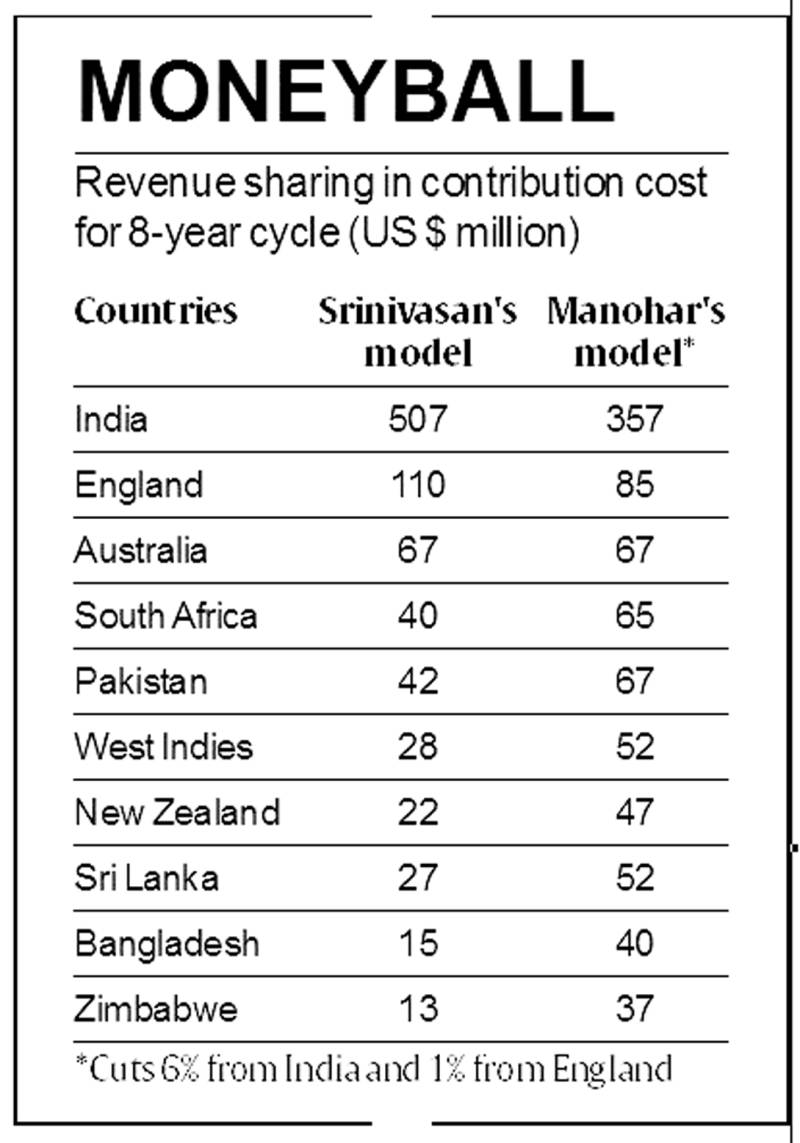KARACHI - Pakistan Cricket Board (PCB) chief Shaharyar Khan Friday said that he would push for the elimination of the Big Three governance system and revenue distribution formula, besides opposing the proposal for four-day Test matches at the ICC board meeting at Dubai.
“We want the Big Three governance system and revenue distribution formula abolished and we see no constitutional problems for the ICC to do this,” Shahryar told the media before leaving for Dubai.
Shaharyar made it clear that Pakistan had supported the Big Three governance system in 2014 because India had signed a MoU with them that they would play six bilateral series between 2015 and 2023. “That was our reason and condition for supporting the Big Three but when India has not fulfilled its obligations under the MoU, we see no reason to continue our previous policy,” he pointed out.
The Board of Control for Cricket in India (BCCI) has profited the most from the Big Three governance system as it gets the major chunk of the revenues that ICC earns from its events and broadcasting rights between 2015 and 2023. India is supposed to get around 21 per cent share followed by Australia and England.
Shaharyar said Pakistan had done its homework on the revenue distribution system and wanted equal share for all member countries. “Under the current formula we will end up with just around $98million while India stands to get around $500million. We don’t see this as a system based on equality.”
Shaharyar said the PCB was expecting India to oppose disbanding the Big Three governance system but due to changes in Indian cricket board set-up it may not be clear about its policies. “The ICC meetings will give us a chance to sit down with the new office bearers of the Indian cricket board and see what they have in mind specifically in relation to bilateral series with us,” he said.
Shaharyar also said that Pakistan would not support four-day Tests as there was no need to tinker with the spirit of Test cricket. “Five day matches are the spirit of Test cricket and what happens if it rains in a four-day Test? I don’t think we need to try to change things with Test matches.”
Pakistan’s gain in India’s pain: If ICC's abolishes the Big-Three Model then it will not only be a blow to BCCI's revenue but will also help the rivals Pakistan in generating more money.
As the ICC officials meet in Dubai for the meeting, the top agenda will be to abolish the much-talked Big Three Model that came into existence in 2014 after the proposal of former BCCI President N Srinivasan. However, if that happens it may not only be a blow to BCCI’s revenue but will also help the rivals Pakistan in generating more money.
Till 2014 all the Test cricket playing nations used to get US $67 million each from the International Cricket Council. However, the then BCCI President N Srinivasan proposed that the countries that bring in more revenue should get a bigger share in it allowing India, Australia, and England to cumulatively have a share of 27.4% in the 2015-2023 cycle, with India alone having a share of 20.3%.
So, while countries like Bangladesh and Zimbabwe were making $5million and $3million respectively in the eight-year period, India would have gone on to make nearly $507million. On the other hand, Pakistan would have made just 42 million US dollars.
However, the new BCCI President Shashank Manohar wasn’t a big fan of this concept as he thought that this would bring an imbalance. He took over as the ICC Chairman in 2015 a proposed that more share should be given to smaller countries to promote cricket.
This idea didn’t go well with BCCI and India was the only country to oppose him. But, if his idea is accepted in the ICC meeting, India’s share will come down to $357million while Pakistan’s share will increase to $67million.
Since ICC is also planning to give Test status to Ireland and Afghanistan, it will further lead to the division of revenue, bringing India’s share further down.






